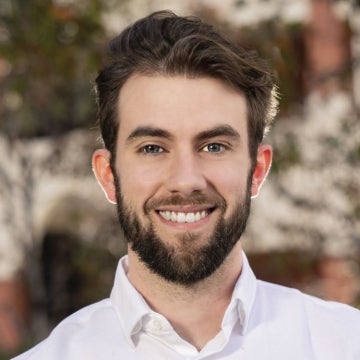
Thomas Ash
Biography
Thomas Ash joined the UCLA Anderson School of Management as a Researcher and the UCLA Anderson Forecast as an Economist in 2023. His research involves subjects in Macroeconomics, Finance, Digital/Media Economics, Climate Change and Migration. His work uses a range of methods, including empirical data analyses, optimization modelling and machine learning methods to answer research questions in these areas. He has particular expertise in the use of Natural Language Processing (NLP) methodologies.
Prior to joining UCLA, Thomas obtained a PhD in Economics from the University of Southern California. He holds a Bachelors and Masters in Economics from the London School of Economics, as well as a Graduate Certificate and Masters in Mathematics from the University of London, Birkbeck. Finally, Thomas worked for over five years in Economic Consulting at National Economic Research Associates (NERA) and Oxford Economics.
For the UCLA Anderson Forecast, Thomas is involved in developing forecasts of the impacts of Climate Change on the economy, as well as forecasts of the California Economy. Thomas' most recent research examines Green Finance and ESG, Social Media's role in herding, polarization and asset price bubbles, as well as Macroeconomic models that analyze the impact of Climate Change through its impact on Natural Disasters.
Education
PhD. Economics, 2023, University of Southern California
MSc. Mathematics, 2017 (part-time), University of London, Birkbeck
MSc. Economics, 2011, London School of Economics
BSc. Economics, 2010, London School of Economics
Publications
Disease-economy trade-offs under alternative pandemic control strategies (with Antonio Bento, Daniel Kaffine, Akhil Rao and Ana Bento), Nature Communications (2022)
Working papers
Talking and bubbles: narratives in Social and News Media (2024)
How asylum seekers in the United States respond to their judges: evidence and implications (with Emily Nix; 2023)
A tale of two Bitcoin bubbles: the role of textual risk factors and how they differed across episodes (2023)
Do Macro-Climate models need financial frictions: empirical evidence and a structural model (2022)
Works in progress
Green borrowing cycles (with Matt Kahn; 2023)